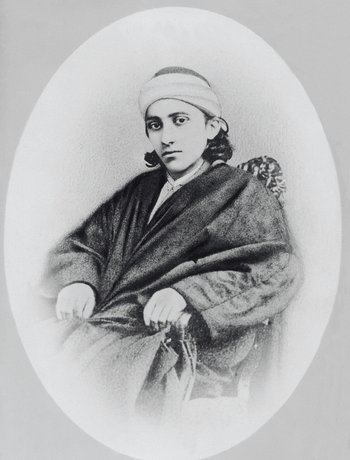The views expressed in our content reflect individual perspectives and do not represent the authoritative views of the Baha'i Faith.
Baha’u’llah, the prophet and founder of the Baha’i Faith, suffered enormous grief at the death of his young son.
This painful event experienced by Baha’u’llah on June 23, 1870, occurred after eighteen years of incalculable privation, hardship and torture. Baha’u’llah had been incarcerated in the Siyah-Chal, known as the Black Pit of Tehran, with chains so heavy he forever bore the scars. After his release in 1854, though still suffering illness from this imprisonment, he had been forced to go on foot in the midst of a harsh winter across the mountains of Hamadan into exile in Baghdad.
After a period in Baghdad, and further exile to Constantinople and then to Adrianople, Baha’u’llah and his family, together with a few other followers, were finally exiled to the wretched prison city of Akko, Palestine (now known as Akka, Israel) in August of 1868, where they were confined in the stench-filled barracks cells. There they endured the most pitiful of conditions imaginable—little food, foul water, cold stone floors and walls, malarial insects and putrid air that rose up from the sea water in the mote below.
While Baha’u’llah and his family and followers endured these conditions for more than two years, it was in June of the second year that a particularly grievous tragedy occurred. Baha’u’llah’s twenty-two-year-old son Mirza Mihdi fell through an unguarded skylight one evening at twilight as he paced along the roof engrossed in his evening devotions. He fell onto some wooden crates that shattered and pierced his ribs and caused him to die some twenty-two hours later.

Mirza Mihdi
Mirza Mihdi, also titled “The Purest Branch,” had been a loving and dutiful son, imprisoned with his father since the days in Baghdad, serving to assist his beloved father in any way he could. As Baha’u’llah grieved beside his dying son, Mirza Mihdi requested that his life be accepted as a ransom to God for those who had been kept back from visiting Baha’u’llah, so that they might at last be allowed to attain his presence.
The extent of the intense grief this experience caused Baha’u’llah is evident in one line from a prayer he revealed in honor of this precious son: “I have, O my Lord, offered up that which Thou hast given Me, that Thy servants may be quickened, and all that dwell on earth be united.” He then addressed his departed son with this assurance: “Thou art the Trust of God and His Treasure in this Land. Erelong will God reveal through thee that which He hath desired.” – quoted by Shoghi Effendi in God Passes By, p. 188.
Consolation in the Baha’i Burial Laws
There is no Baha’i formula for grieving, no explicit prescription for the purging of sorrow and surmounting the grief from the loss of a loved one.
The most obvious consolation in the Baha’i teachings is straightforward and obvious—the belief that the death of a loved one, even as the result of injustice or if considered premature from an earthly or personal perspective, has not in any way deterred the felicity or progress of the essential reality of the deceased, the conscious rational soul.
Where it may be a traditional observation with many belief systems to note that the departed has passed beyond this “veil of tears” and will no longer be made to suffer the trials and tribulations of this life, such observations seem hollow and leaden to one who does not simultaneously understand that, in reality, the departed soul is not in any important sense deceased—merely temporarily removed from the observation, presence, and companionship of the bereaved. Yet the absence of further worldly affliction on the part of the deceased is, by itself, not much consolation to those left behind.
In this sense, the Baha’i attitude towards the death of a loved one begins from an entirely distinct point of view. The sorrow and grief are no less real, but they are recognized as having two purposes. The first purpose is to memorialize or honor the decedent, to pay homage to the contributions this soul has made to the spiritual progress of humankind. The second purpose is to provide an occasion for those left behind to share expressions of sorrow for the loss of the companionship of the one who has been born into the next and more felicitous and expansive stage of their existence. Obviously this response and these purposes are as important and valid for one who has died as an infant as it is for one who has died of old age.
So it is that our certitude and faith should never be called into question, by ourselves or by anyone else, simply because we grieve.
Our sorrow is not an index to our confidence that life goes on beyond the mortal veil. In this context, it is well worth noting before we conclude our assessment of the Baha’i attitude about the art of dying, how Baha’u’llah has provided explicit guidance for dealing with this time of transition on the part of those who are left behind. But as with all of the laws of Baha’u’llah for this dispensation, there is very little in the Baha’i approach to funeral and burial services and procedures that is ritualistic or formulaic. Like all Baha’i laws regarding administrative procedures and personal, familial, and community life, the laws regarding interment are culturally neutral and adaptable to various types of memorial services or commemorative trappings.
You May Also Like
Comments

















vale
Regards,
Sam